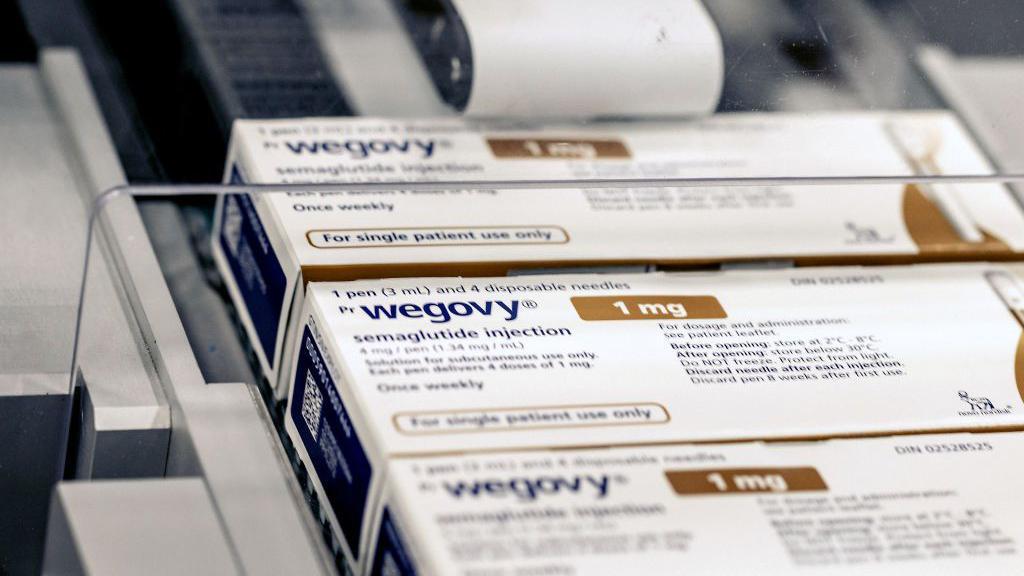October 26, 2024, 10:03 PM
October 26, 2024, 10:03 PM
We are in the era of weight loss medications.
Decisions about the use of these medications are likely to define our future health and even what our society may look like.
And as researchers are discovering, they are also overturning the belief that obesity is simply a moral failing of the weak-willed.
Weight loss drugs are already at the center of the national debate in countries like the United Kingdom, where the new government suggested they could be a tool to help obese people get off benefits and back to work.
That ad (and the reactions it generated) is a clear reflection of our personal views on obesity and what needs to be done to address it.
Here are some questions I would like to pose to the reader.
Is obesity something that people bring on themselves and simply requires making better decisions in life? Or is it a social failure with millions of victims that needs stricter laws to control the types of food we eat?
Are effective weight-loss medications the sensible option in an obesity crisis? Are they being used as a convenient excuse to avoid the bigger question of why so many people are overweight?
There are few medical conditions that spark such heated debate.
What do we believe about obesity?

I can’t answer all those questions for readers; It all depends on your personal views on obesity and the kind of world you want to live in. But while you think about it, there are a few more things to consider.
Obesity is highly visible, unlike conditions such as high blood pressure, and has long been accompanied by a stigma of guilt and shame. Gluttony is one of the seven deadly sins of Christianity.
Now, let’s look at semaglutide, which is sold under the brand name Wegovy for weight loss. It mimics a hormone that is released when we eat and tricks the brain into thinking we are full, reducing our appetite so we eat less.
What this means is that, just by changing one hormone, “you suddenly change your entire relationship with food,” says Professor Giles Yeo, an obesity scientist at the University of Cambridge.
And that has all kinds of implications for how we think about obesity.
It also means that for many overweight people there is a “hormonal deficiency”Professor Yeo argues, leaving them biologically hungrier and more vulnerable to gaining weight than someone who is naturally thin.
This was probably an advantage 100 years or more ago, when food was less abundant, something that led people to consume calories when they were available because of the uncertainty of not knowing if there would be food tomorrow.
A weapon against diseases

There have been no profound changes to our genes in the last century, but the world we live in has made it easier to gain weight with the rise of cheap, high-calorie foods, ever-increasing portion sizes, and towns and cities that They make it easier to drive than to walk or bike.
These changes took off in the second half of the 20th century, giving rise to what scientists call the “obesogenic environment”—that is, one that encourages people to eat unhealthy and not get enough exercise.
According to the World Health Organization, one in eight people worldwide lives with obesity.
Wegovy can help people lose about 15% of their initial body weight before the benefits plateau.
Although it is constantly labeled as a “weight loss drug,” this could help someone who weighs 127 kilos lose to 107 kilos. Medically, that would improve your health in areas like reducing your risk of heart attack, sleep apnea, and type 2 diabetes.
But Dr Margaret McCartney, a Glasgow GP, warns: ““If we continue to put people in an obesogenic environment, we’re only going to increase the need for these medications forever.”
At the moment, the UK’s National Health Service plans to prescribe the drugs for only two years due to cost. Evidence shows that when the injections are finished, appetite returns and weight returns.
“My big concern is that the issue of preventing people from becoming overweight is not taken into account,” says Dr. McCartney.
Environments that promote obesity

We know that the obesogenic environment starts early. The WHO says that in 2022, at least 37 million children under 5 years old were overweight.
And we know that it hits poorer communities harder than richer ones, in part due to the lack of availability of cheap, healthy food in those less prosperous districts.
But there is often a tension between improving public health and civil liberties. You can drive, but you have to wear your seat belt; You can smoke, but with very high taxes and restrictions on age and where you can smoke.
So here are a few more things for the reader to consider. Should we also address the obesogenic environment or simply treat people when it starts to harm their health? Should the government be much tougher on the food industry, transforming what we can buy and eat?
Should we be encouraged to become Japanese (a rich country with little obesity) and eat smaller meals based on rice, vegetables and fish? Or should we limit calories from ready meals and chocolate bars?
What about taxes on sugar or junk food? What about broader bans on where high-calorie foods can be sold or advertised?
Professor Yeo says that if we want change “we are going to have to make concessions somewhere; we are going to have to lose some freedoms”.
Measures

In England, there have been official anti-obesity initiatives. Fourteen of them over three decades and with very little to show.
They included five-a-day campaigns to promote fruit and vegetable consumption, food labeling to highlight calorie content, restrictions on advertising unhealthy foods to children, and voluntary agreements with manufacturers to reformulate foods.
But while there are tentative signs that childhood obesity in England may be starting to fall, none of these measures altered the national diet enough to turn the tide on obesity overall.
There is a school of thought that holds that weight loss medications may even be the event that triggers the change in our eating.
“Food companies make profits, that’s what they want; the only ray of hope I have is that if weight loss drugs help many people resist buying fast food, can that initiate partial change of the environment asks Professor Naveed Sattar, from the University of Glasgow.
As weight loss medications become more available, it will soon be necessary to decide how they will be used and how they fit into our broader approach to obesity.

At the moment we are just dipping our toes in the water. There is a limited supply of these medications and, due to their enormous cost, they are available to relatively few people and for a short time.
That is expected to change dramatically over the next decade. New drugs, such as tirzepatide, are on the way, and pharmaceutical companies will lose their legal protections – patents – meaning other companies will be able to make their own cheaper versions.
In the early days of blood pressure-lowering medications or cholesterol-lowering statins, they were expensive and prescribed to few. Currently, millions of people take them.
Professor Stephen O’Rahilly, a leading researcher of obesity and metabolic diseases, says blood pressure was tackled through the use of a combination of drugs and social changes: “We screened for blood pressure, advised blood pressure levels low sodium [sal] in food and developed cheap, safe and effective blood pressure medications.”
This is, he says, what must happen with obesity.
More questions than answers

It’s still unclear how many of us will end up taking weight-loss medications. Will it only be for those who are very obese and at medical risk? Or will it be preventive to prevent people from becoming obese?
How long should you take weight loss medications? Should it be for life? How widely should they be used in children? Does it matter if people taking these medications still eat unhealthy junk food, but less?
How quickly should we adopt the use of weight loss medications when we do not yet know the side effects of their long-term use? Do we agree that healthy people take them exclusively for aesthetic reasons? Could its private availability widen the obesity and health gap between rich and poor?
So many questions but, So far, few clear answers.
“I don’t know where this is going to end: we are in a time of uncertainty,” says Professor Naveed Sattar.

Subscribe here to our new newsletter to receive a selection of our best content of the week every Friday.
And remember that you can receive notifications in our app. Download the latest version and activate them.
















